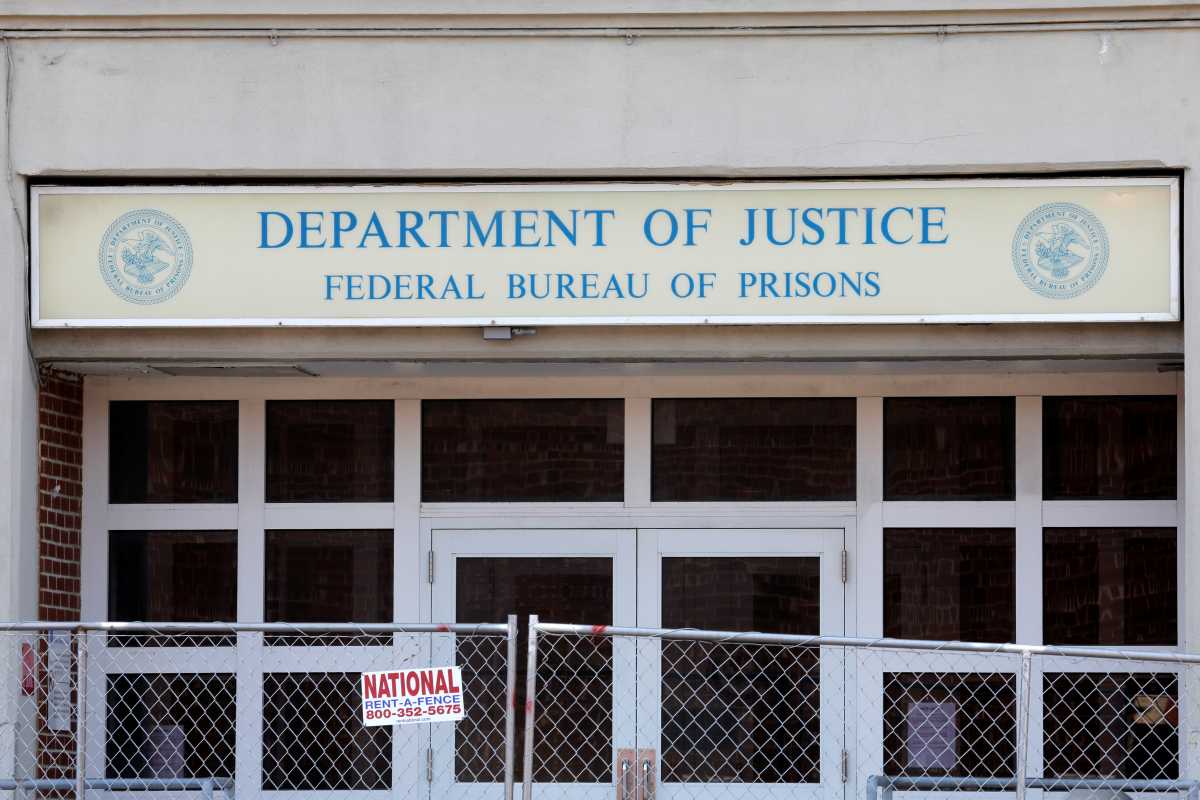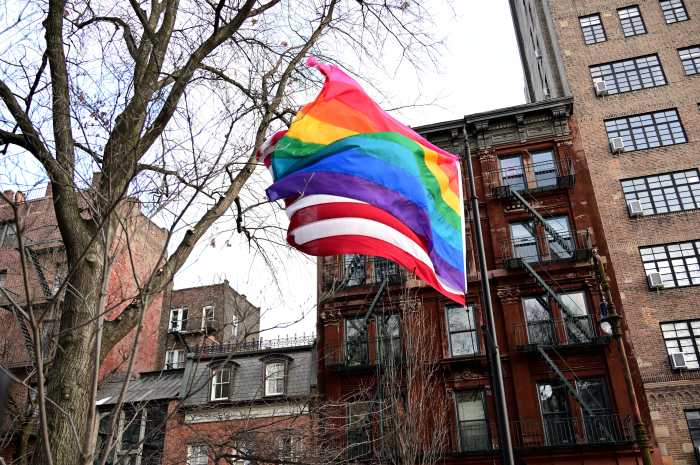A federal judge on June 3 certified a class-action lawsuit filed by a group of transgender inmates incarcerated in the US Bureau of Prisons (BOP) and issued a preliminary injunction requiring the continuation of gender-affirming care in federal prisons while the issue works its way through federal courts.
Senior US District Judge Royce C. Lamberth issued the ruling on June 3 in the case of Kingdom v. Trump, which challenges the constitutionality of President Trump’s directive ordering that no federal funds be spent on gender-affirming care for inmates and the policy statements issued by BOP to enforce the order. The judge’s preliminary injunction requires that such care be continued during the pendency of a lawsuit filed by three transgender inmates represented by GLBTQ Advocates and Defenders (Boston) and the National Center for Lesbian Rights (San Francisco) and volunteer attorneys from Rosen Bien Galvan & Grunfeld, LLP, San Francisco.
In February, Judge Lamberth had issued a temporary restraining order (TRO) in a separate lawsuit, Doe v. McHenry, blocking BOP from transferring transgender inmates to prison facilities consistent with their sex as defined by Trump’s executive order, which states, in effect, that the policy of the United States is that people’s sex is immutably either male or female and cannot be changed based on their gender identity. In the June 3 decision, Judge Lamberth found that Trump’s ban on providing any gender-affirming care to inmates who were diagnosed with gender dysphoria must be blocked until the court can issue a ruling on whether the executive order and the policies issued by BOP in response to the order are unconstitutional.
BOP responded to the filing of these lawsuits and the quick issuance of TRO rulings by Judge Lamberth by holding up on transfers and restoring hormone treatment, and tried to persuade Judge Lamberth that BOP had “mooted” the case by doing so, but he rejected their arguments, finding that failing to issue a preliminary injunction could lead to irreparable harm to the plaintiffs and other transgender inmates in the system. He also rejected BOP’s argument against class certification.
A court cannot issue such pre-trial relief without finding that the plaintiffs are likely to win the case on at least one of their claims. Judge Lamberth concluded that in this case it was likely that the transgender inmates would win on their claim that the BOP had violated the Administrative Procedure Act (APA), a statute that requires that federal agencies have a reasonable basis for their actions that affect the rights of individuals. At this stage of the proceedings, the BOP has not articulated any reasonable basis for changing the way it was treating transgender inmates.
The Bureau admits that more than 600 inmates in the federal system were receiving cross-sex hormones when it adopted the new policy dictated by Trump, and as far as BOP can count, there are more than 1,000 transgender inmates in the federal prison system. The only reason that BOP gave for the new policy it announced was that it was enforcing Trump’s executive order. This, wrote Lamberth, was not sufficient to be a “reasoned explanation” for this change of policy, leading to the likely conclusion that BOP’s action was “arbitrary and capricious,” thus violating the APA.
Judge Lamberth commented that it was not necessary at this stage of the case to decide whether plaintiffs were likely to prevail on their Eighth Amendment claims that the policies ordered by Trump and announced by the BOP violate the plaintiffs’ constitutional rights under the 8th Amendment (which bans “cruel or unusual punishment”) to receive appropriate treatment for a serious medical condition.
In past litigation, federal courts below the level of the Supreme Court have issued many decisions finding that gender dysphoria is a serious medical condition, so inmates who have been diagnosed have a right to receive medically necessary treatment for it. Judicial views vary on whether particular treatment in any individual case is medically necessary, but many courts have ruled that hormone treatment and, to varying degrees, “social accommodations” like allowing transgender inmates access to gender-specific underwear, grooming, cosmetics and hair length, can be deemed medically necessary, based on expert testimony concerning the psychological effect of denying these things. There are even a few courts that have found that transgender inmates with extreme gender dysphoria may be entitled to be provided with gender-affirming surgery.
Many courts refer to the standards of care that have been adopted by the World Professional Association for Transgender Health (WPATH), an association of medical professionals involved in the treatment of gender dysphoria. The WPATH standards have been called “the gold standard” for treatment of gender dysphoria by some courts, but have been dismissed by some others as the expression of an activist organization not based on well-grounded impartial science.
The Supreme Court will soon be issuing a decision in the case of United States v. Skrmetti, a challenge to the constitutionality of Tennessee’s law banning medical professionals from providing gender-affirming care to minors. Prior to this, the Supreme Court has rarely addressed transgender issues, but its 2020 decision in Bostock v. Clayton County, Georgia, implicitly recognized the reality of gender identity when it ruled that discrimination against an individual because of their “transgender status” would be illegal under Title VII of the Civil Rights Act of 1964, which prohibits discrimination because of sex by employers with at least fifteen employees. That opinion, written for six members of the Supreme Court by Justice Neil Gorsuch, a Trump appointee, did not question the reality of gender identity or transgender status, accepting it as a given, contrary to the views Trump expressed in his executive order.
Assuming the Justice Department will follow the usual Trump Administration playbook, they are likely to ask the court to “stay” its class certification and preliminary injunction while defendants appeal to the DC Circuit Court of Appeals. If Judge Lamberth denies a stay, they will appeal that denial to the DC Circuit, or even, as they have tried to do recently in other litigation, file an “emergency” petition with the Supreme Court seeking a stay. But unless or until a stay is issued, BOP must continue to provide gender-affirming care and social accommodations to the extent they were provided prior to Trump’s executive order.





































